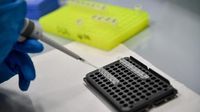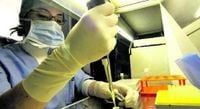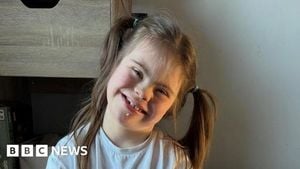In the Netherlands, a startling revelation has emerged regarding sperm donation practices that could have serious implications for public health. According to the national association of gynecology and obstetrics (Nvog), at least 85 sperm donors have fathered 25 or more children, violating regulations that have been in place for decades. This alarming trend raises concerns about the potential for genetic issues stemming from consanguinity in a nation of just 17 million inhabitants.
Since 1992, Dutch law has prohibited a single sperm donor from fathering more than 25 children, a measure aimed at preventing the risks of involuntary incest and genetic disorders. However, compliance with this law has proven challenging, particularly due to stringent privacy regulations. In 2018, the limit was further reduced to 12 children per donor, but the national register of donors and mothers, which is crucial for monitoring compliance, only became operational retroactively in April 2025.
The findings from the new centralized registration system have revealed that several fertility clinics have ignored these regulations, leading to what some are calling a "medical calamity." Ties van der Meer from the Stichting Donorkind foundation, which assists donor-conceived children in tracing their biological origins, noted that the situation is dire. "There are at least 3,000 children in the Netherlands who have 25 or more half-siblings," he stated. "When these children start dating, they will need to undergo DNA tests to ensure they are not dating a close relative."
The emergence of what are termed "super-donors" has raised eyebrows. Since the abolition of donor anonymity in 2004, it has come to light that some men have fathered an astonishing number of children through donation. Most super-donors have between 26 and 40 offspring, but some have reportedly fathered as many as 75. The most notorious case is that of Jonathan Jacob Meijer, who has been featured in the Netflix documentary "The Man with 1,000 Kids". Authorities estimate that Meijer has fathered at least 550 children worldwide, with over 100 of those born in Dutch clinics.
On April 14, 2025, the Nvog stated that some clinics had deliberately used the same sperm samples more than 25 times, violating existing rules. Furthermore, genetic material was exchanged between clinics without the necessary documentation or the consent of the donors. This has led to a situation where the number of children per donor was grossly underestimated until now.
Van der Meer expressed his concerns about the long-term psychological impacts on both the children and some of the donors involved. "The damage to trust in the medical profession and the institutions that allowed this is just the beginning," he warned. "There will be psychological repercussions for both the children and some of the donors."
As the Dutch Ministry of Health prepares to inform Parliament about these findings, the gynecological association is urging all parties involved—mothers, donors, and children—to contact their fertility clinics for complete information. This call to action highlights the urgent need for transparency and accountability in the fertility sector.
The implications of this situation are profound. In a small and densely populated country like the Netherlands, the risk of accidental incest is not merely theoretical. As Van der Meer pointed out, the reality is that these children will have to navigate complex familial relationships as they grow up. "When they start dating, they’ll need to take DNA tests to ensure they’re not getting involved with a close relative," he reiterated.
This scandal has prompted a broader discussion about the ethical responsibilities of fertility clinics and the need for stricter regulations to protect donor-conceived children. The current situation not only raises ethical questions but also challenges the integrity of the healthcare system in the Netherlands.
As the investigation unfolds, stakeholders from various sectors will be watching closely. The gynecological association's apology, issued through spokesperson Marieke Schoonenberg, reflects a growing recognition of the gravity of the situation. "The number of so-called super-donors should be zero," Schoonenberg stated during a television interview. "Only now can we accurately know how many children each donor has had. On behalf of the entire profession, we want to apologize: things have not been done as they should have been."
The scandal underscores the importance of robust regulatory frameworks to ensure that the rights and health of all parties involved in sperm donation are protected. As the Dutch government takes steps to address these issues, it remains to be seen how the public will respond and what changes will be implemented to prevent such violations in the future.
In summary, the revelation of rampant violations in sperm donation practices in the Netherlands has sparked a significant public health concern. With thousands of children potentially at risk of genetic complications due to consanguinity, the call for transparency and reform in the fertility industry has never been more urgent. As the situation develops, it serves as a cautionary tale about the critical need for ethical standards in reproductive medicine.





